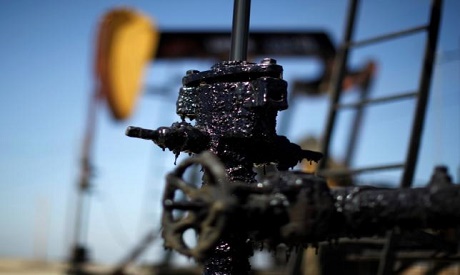
Pump jacks are seen in the Midway Sunset oilfield, California, in this April 29, 2013. (Photo: Reuters)
Oil slid below $33 a barrel on Thursday to levels not seen in more than a decade, as a tumble in Chinese equities rattled investors already concerned by near-record production and massive stockpiles of unwanted crude.
The price of oil has shed around 70 percent since the current downturn began in June 2014, causing pain to oil companies and governments that rely heavily on crude revenues.
China let the yuan slip on Thursday, sending regional currencies and stock markets tumbling as the offshore yuan CNH=D3 fell to its lowest since trading started in 2010. [MKTS/GLOB]
China's stock markets were suspended less than half an hour after opening, the second emergency suspension this week.
"Negative sentiment is hurting demand expectations, growth is easing in China and there is a spillover from the inventory build in (US) gasoline stocks from yesterday and this is reflected in prices," said Hans van Cleef, senior energy economist at ABN Amro in Amsterdam.
Brent LCOc1 fell more than 5 percent, or about $2 per barrel, to a low of $32.16, a level not seen since April 2004. It had recovered to $32.87 by 0857 GMT (3.57 a.m. ET).
US crude futures CLc1 dropped more than 5 percent to a low of $32.10 per barrel, a level not seen since late 2003, before bouncing slightly to $32.56.
On Wednesday, US government data showed a 10.6-million-barrel surge in gasoline supplies, the biggest weekly build since 1993.
Technical analysts said there was little to stop the price tumbling further.
"The 'bear-fest' has now begun," PVM technical analyst Robin Bieber said. "The trend is down and likely to accelerate lower - it is not advised to be long. There are targets lower and these are likely to be mere staging posts on a much bigger move south."
Exacerbating the oil market woes is weakening demand, especially in Asia and especially China, which is seeing the slowest economic growth in a generation.
Short link: